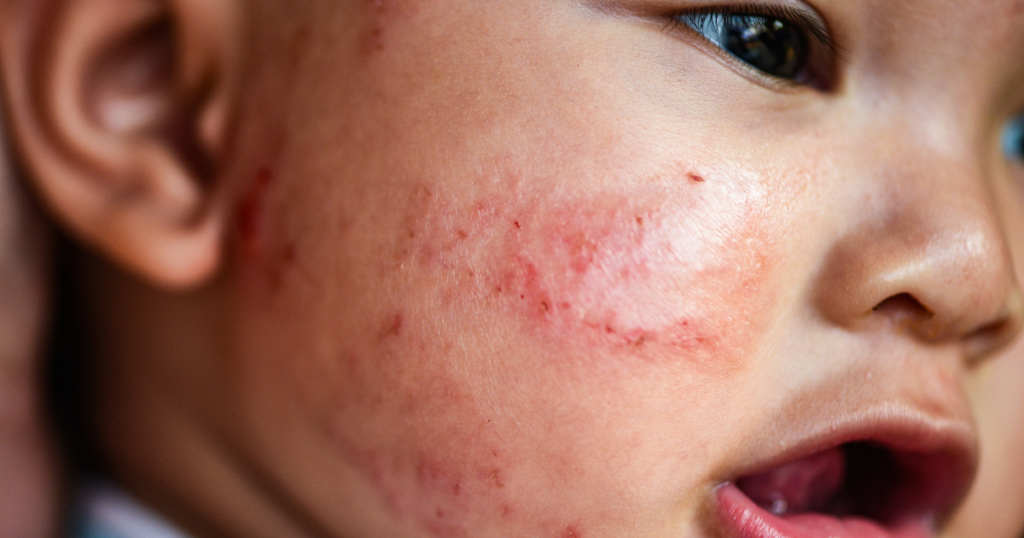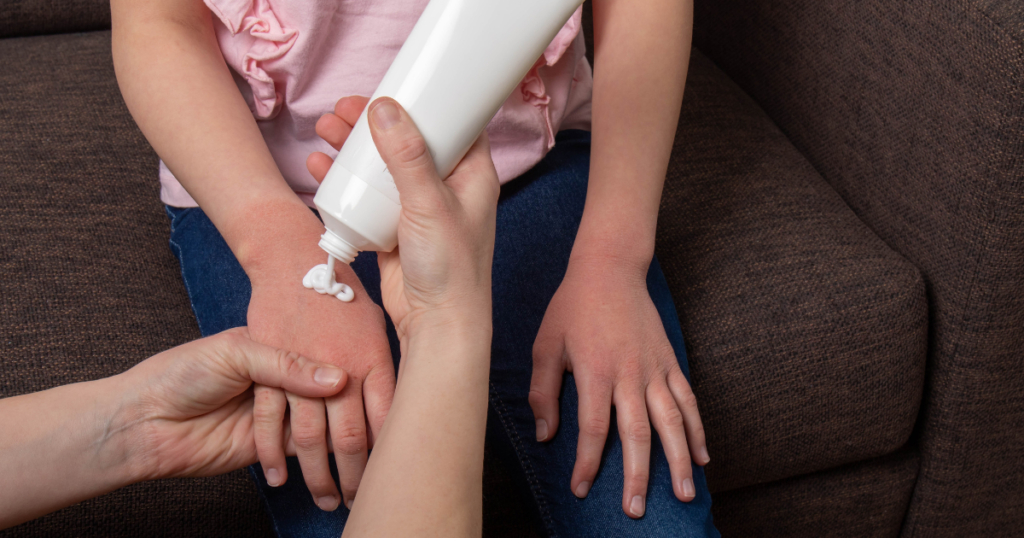Introduction:
Discover the causes, symptoms, treatment, and prevention tips for eczema on eyelids in this informative blog post.
What Causes Eczema on Eyelids?
Unravel the mystery of eczema on eyelids as we explore the genetic and environmental factors contributing to this condition. Eczema on eyelids Learn about common triggers such as allergens, irritants, stress, hormonal changes, makeup, contact lenses, and UV rays.
What are the Symptoms of Eczema on Eyelids?

What are the Symptoms of Eczema on Eyelids?
Stay alert for signs of eczema on eyelids, including itchiness, redness, dryness, swollen eyelids, flaking skin, and a burning sensation. In more severe cases, scaly skin and discharge may affect vision.
How is Eczema on Eyelids Treated?
Discover the range of treatment options for eczema on eyelids, from over-the-counter creams and ointments to immunosuppressant drugs and topical steroids prescribed by dermatologists. Prioritize professional advice and avoid self-medication.

How Can You Prevent Eczema on Eyelids?
While it may not always be preventable, take proactive steps to reduce your risk of eczema on your eyelids. Avoid rubbing and scratching, minimize exposure to allergens and irritants like makeup, and maintain the cleanliness of your makeup brushes and cleansing wipes. If you wear contact lenses, adhere to care instructions, and protect your eyes from UV rays with sunglasses.
Conclusion:
Early diagnosis and treatment are vital for managing eczema on eyelids and minimizing complications. If you exhibit symptoms or have concerns, seek medical advice from a dermatologist, physician, or cardiologist if related to congestive heart failure. Remember to prioritize prevention by keeping your skin clean, avoiding irritants and allergens, and safeguarding against sun damage. We hope this blog post has provided you with valuable insights into understanding eczema on eyelids.
1 thought on “Eczema on Eyelids”